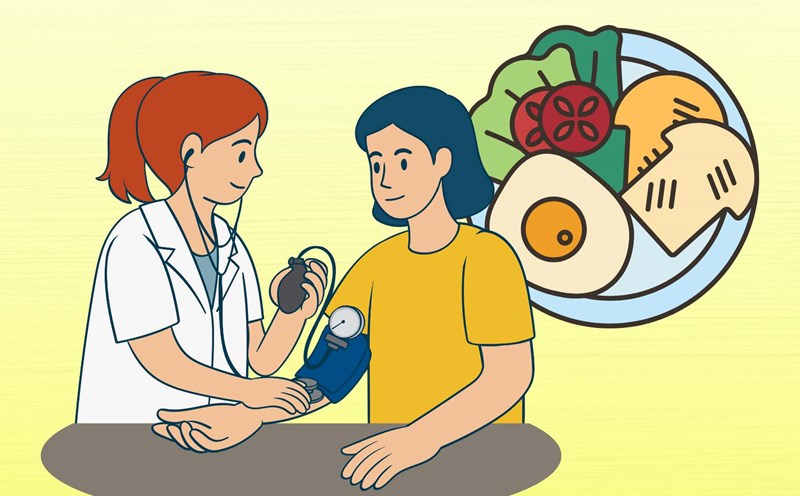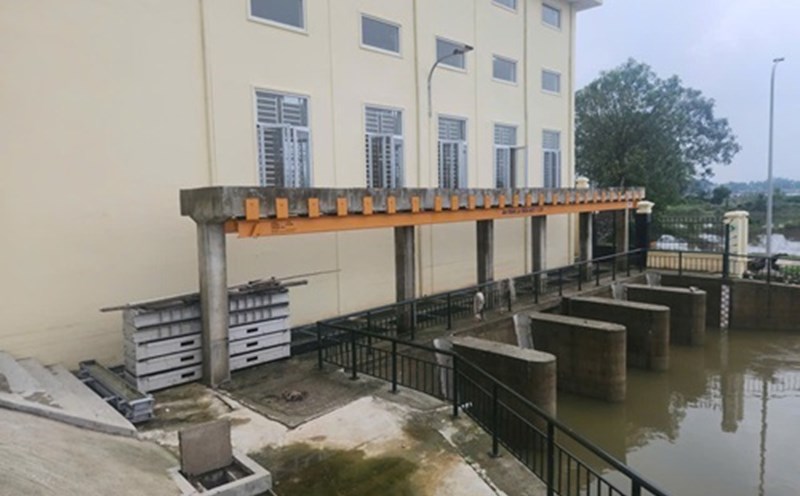Why does blood pressure decrease during pregnancy?
According to Dr. Parul Aggarwal, Consultant of Obstetrics and Gynecology at Cloudnine Group of Hospitals, Indirapuram (India), during pregnancy, special hormones help dilate blood vessels, making blood circulate more easily to provide enough oxygen and nutrients for the fetus. This can cause a slight decrease in the mother's blood pressure, which usually occurs in the first and second trimester. The common blood pressure level of pregnant women is usually about 90/60 mmHg. However, if the center blood pressure drops below 80 or the center blood pressure drops below 50, it is a sign of low blood pressure that needs attention.
Symptoms of low blood pressure during pregnancy
Low blood pressure can cause some uncomfortable symptoms such as:
Dizziness, dizziness, especially when standing up suddenly
blurred vision, nausea
Prolonged fatigue
Cold or moist skin
fainting in severe cases
These symptoms are usually mild and manageable. However, if you often feel faint or seriously dizzy, you should see a doctor immediately.
How does low blood pressure affect the fetus?
Mild low blood pressure is usually not harmful to the baby. However, if blood pressure is too low for a long time, blood flow to the placenta can decrease, causing the fetus to not receive enough oxygen and necessary nutrients. This can lead to a number of problems such as:
Limited fetal growth
Premature birth
Light birth weight
In rare cases, sudden drops in blood pressure due to dehydration or bleeding can cause serious complications, even endangering the life of the fetus.
How to safely control low blood pressure during pregnancy
Most cases of low blood pressure can be controlled at home with simple changes such as:
Drink enough water, at least 8-10 glasses a day
Eat many small meals to maintain stable blood sugar
Stand up slowly after sitting or lying down to avoid dizziness
Avoid standing for long periods, rest and sit down when needed
Sleeping on your left side helps increase blood flow to the fetus
Wear loose, cool clothes
When you feel dizzy, you should sit or lie down, raise your legs and breath evenly, drink water or coconut water to improve the condition quickly.
When to see a doctor?
If you experience serious signs such as frequent fainting, chest pain, shortness of breath, confusion, blurred vision or reduced fetal movement, contact your doctor immediately. This can be a sign of dangerous low blood pressure or other health problems that require timely intervention.
Note
Dr. Parul Aggarwal says low blood pressure during pregnancy is common and often not dangerous if properly monitored and managed. However, pregnant mothers need to pay attention to unusual signs and maintain a healthy lifestyle to protect the health of both mother and baby. Regular pregnancy check-ups and regular contact with your doctor will help you feel more secure throughout pregnancy.











